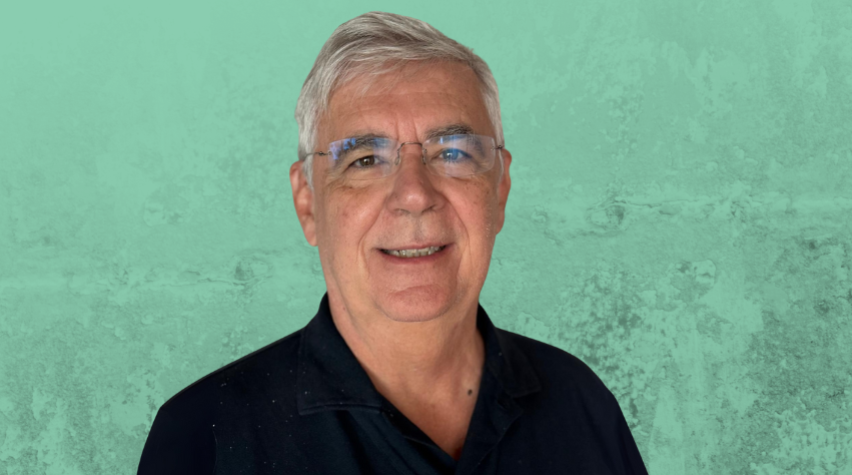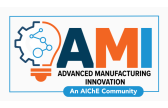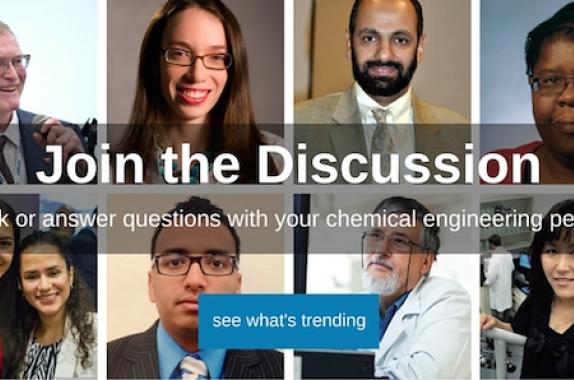
Process engineers play a crucial role in driving innovation and efficiency across industries like petrochemicals, pharmaceuticals, food, and more. In this series, we spotlight the dedicated professionals who solve complex challenges and shape the future of these vital sectors. With over 800 members, The Community of Process Engineers is AIChE’s most active discussion group, connecting experts who make a real impact. Interested in being featured? Learn more and join the conversation at aiche.org/CPE.
This month, we introduce you to Alberto Carimati, SVP Operation and Technologies, Aica Asia Pacific Pte Ltd. He discusses his career path, overcoming challenges, and the importance of his work.
Tell us a bit about your work as a process engineer.
I've been in the chemical industry since 1987, starting as a researcher in a heterogeneous catalysis lab at Stazione Sperimentale per i Combustibili (Experimental Station for Fuels) in Italy. I was fortunate to have a great mentor who introduced me to catalysts and methodologies I still use today.
Becoming a process engineer requires a degree, but truly excelling demands understanding systems, from concept to troubleshooting.
I then moved to BASF Italia, working as a process engineer in azo pigment production and animal feed additives, handling tasks like understanding and improving production processes, though without the maturity I would gain later.
In 1995, I joined Lonza Italia in the licensing department, developing a new isophthalic acid process technology. Initially planned for the USA, the plant was strategically shifted to Singapore, next to UOP’s MX-Sorbex plant for meta-xylene. The director told me, ”Alberto, once the plant is started up, you will need to prepare the real material balance for the isophthalic acid plant itself.”
That period was pivotal for me. Driven to deepen my process engineering knowledge, I bought and studied every chemical engineering book I could find in Singapore. Combining theoretical learning with the practical challenges of building and ramping up new technology was ideal for honing my skills. I also had the privilege of working with outstanding engineers from the USA, Italy, India, Japan, Singapore, France, and beyond—a truly formative experience.
A significant moment was completing the real plant material balance at various load conditions. This model gave me a deep understanding of the process and helped identify major bottlenecks. We achieved full design capacity and expanded the plant from 50,000 MTA to 70,000 MTA. From then on, I always started with a material balance to understand the process—my compass for new technologies.
In 2014, I joined Aica Asia Pacific Pte Ltd as Senior Vice President of Operations and Technologies. Aica specializes in amino and phenolic resins. From day one, I developed material balances for production processes, laying a strong foundation for CAPEX implementation, process safety, and continuous improvement.
Why did you become a process engineer?
My father was a chemical engineer, so choosing my university studies felt natural. I specialized in process design, balancing technology, mathematics, and computer science (that was 1983). The informatics revolution was beginning; we used mainframes for programs, and the first PCs appeared during my early professional years in 1987.
I truly became a process engineer during the isophthalic acid technology development and startup. Revisiting chemical engineering fundamentals and working with knowledgeable people deepened my understanding. Over the years, I’ve developed a modus operandi that suits me and helps navigate unfamiliar situations.
Becoming a process engineer requires a degree, but truly excelling demands understanding systems, from concept to troubleshooting.
What were some of the biggest challenges you faced in your role as a process engineer?
One major challenge was debottlenecking the isophthalic acid plant. At a dinner in Switzerland with Lonza management, I approached my boss’s boss: ”If you give me USD 5 million, I will deliver an additional 20,000 MTA of isophthalic acid. If I fail, I will leave the company.” The next morning, the project was approved. Within a year, we delivered as promised. It remains one of my favorite stories to tell.
Other challenges often stemmed from a single piece of equipment affecting plant reliability, safety, and profitability. I resolved these by reviewing processes and consulting experts—communication was key.
One example involved a rotary kiln dryer failing due to steam leaks. Despite checking specifications, the issue persisted. A seasoned Italian process engineer suggested improper condensate discharge might cause water hammering. We found the main contractor had altered the original design. Understanding the root cause made the solution clear.
This taught me that a good process engineer must “see” what’s happening inside the plant—an ability that becomes a powerful advantage in any role.
Developing accurate material balances is challenging. I prefer building my own simulations to fully grasp the process. Modeling a formalin absorber, for example, is demanding but always pays off by giving deeper understanding of the system.
How was your work as a process engineer critical to your current job assignment or industry?
Process engineering provides a strong foundation for a solid career, providing a clear understanding of the technical aspects of production, essential for any manufacturing process.
In managerial roles, you may not need to know every detail, but understanding technical principles is essential. This knowledge allows informed decisions and effective support of other functions.
Process engineers uniquely understand flows and dynamics over time—a transferable skill valuable beyond engineering, such as in finance or strategy, especially in senior leadership roles.
What do you think is most important about what you’ve done as a process engineer?
The most important part is creating value for the company, colleagues, and environment. This means lowering costs, using materials more efficiently, and minimizing environmental impact.
Beyond technical achievements, the essence of process engineering lies in collaboration and purpose. Our skills should serve a greater goal: making industry safer, more sustainable, and meaningful for future generations.
For me, process engineering extends beyond solving plant problems—it's about improving the world and our daily lives. One of my retirement projects is applying process engineering principles to everyday life.
Connect with Alberto on AIChE Engage
Join the Community of Process Engineers

The Community of Process Engineers is brought to you by Scott & Karen Love. Their support enables the AIChE Foundation to advance process engineers at every stage of their career allowing them to Do a World of Good.
Go to The Community of Process Engineers
If you are interested in learning more about professional development, networking, and interviewing, be sure to check AIChE Career DiscoveryTM, which is part of the Institute for Learning & Innovation (ILI). See upcoming instances of the Career Discovery Workshop on AIChE Academy and read more about the process here.







